The Economist
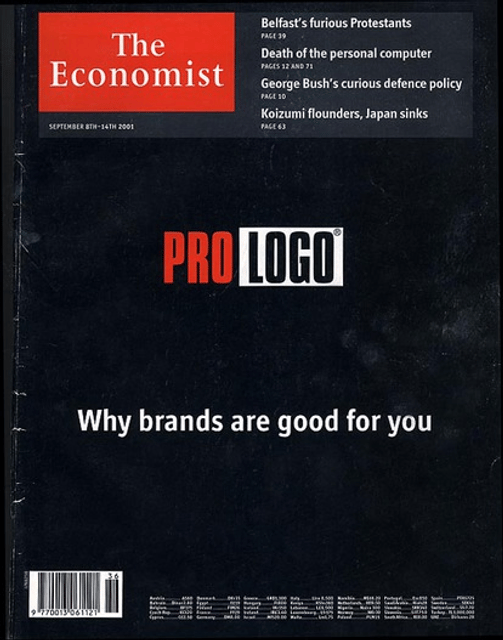
The Economist

| Type | Weekly newspaper |
|---|---|
| Format | Magazine |
| Owner(s) | The Economist Group |
| Founder(s) | James Wilson |
| Editor | Zanny Minton Beddoes |
| Founded | September 1843 |
| Political alignment | Classical liberalism[2]Social liberalism[3]Economic liberalismRadical centrism[4][5] |
| Headquarters | Westminster,London, United Kingdom |
| Circulation | 1,554,948 (print)[6] |
| ISSN | 0013-0613[131] |
| Website |
The Economist is an English-language weekly magazine-format newspaper owned by the Economist Group and edited at offices in London.[3][7][8][9] Continuous publication began under its founder James Wilson in September 1843. In 2015, its average weekly circulation was a little over 1.5 million, about half of which were sold in the United States.[6][3] Pearson PLC held a 50% shareholding via The Financial Times Limited until August 2015. At that time, Pearson sold their share in the Economist. The Agnelli family's Exor paid £287m to raise their stake from 4.7% to 43.4% while the Economist paid £182m for the balance of 5.04m shares which will be distributed to current shareholders.[10] Aside from the Agnelli family, smaller shareholders in the company include Cadbury, Rothschild (21%), Schroder, Layton and other family interests as well as a number of staff and former staff shareholders.[10][11]
A board of trustees formally appoints the editor, who cannot be removed without its permission. Although The Economist has a global emphasis and scope, about two-thirds of the 75 staff journalists are based in the London borough of Westminster.[12] For the year to March 2016, the Economist Group declared operating profit of £61m.[13]
The Economist takes an editorial stance of classical and economic liberalism that supports free trade, globalisation, free immigration and cultural liberalism (such as supporting legal recognition for same-sex marriage or drug liberalisation).[3] The publication has described itself as "a product of the Caledonian liberalism of Adam Smith and David Hume".[14] It claims an audience containing many influential executives and policy-makers.[15] The publication's CEO described this recent global change, which was first noticed in the 1990s and accelerated in the beginning of the 21st century as a "new age of Mass Intelligence".[16][17]
| Type | Weekly newspaper |
|---|---|
| Format | Magazine |
| Owner(s) | The Economist Group |
| Founder(s) | James Wilson |
| Editor | Zanny Minton Beddoes |
| Founded | September 1843 |
| Political alignment | Classical liberalism[2]Social liberalism[3]Economic liberalismRadical centrism[4][5] |
| Headquarters | Westminster,London, United Kingdom |
| Circulation | 1,554,948 (print)[6] |
| ISSN | 0013-0613[131] |
| Website |
History
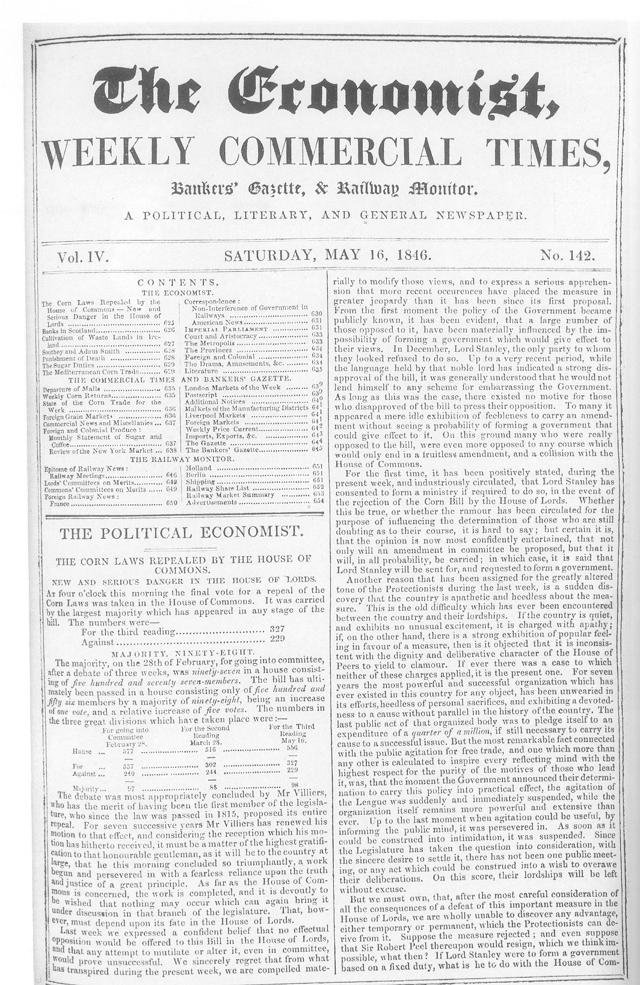
Front page of The Economist on 16 May 1846
The Economist was founded by the British businessman and banker James Wilson in 1843, to advance the repeal of the Corn Laws, a system of import tariffs.[18] A prospectus for the "newspaper" from 5 August 1843 enumerated thirteen areas of coverage that its editors wanted the publication to focus on:[19]
Original leading articles, in which free-trade principles will be most rigidly applied to all the important questions of the day.
Articles relating to some practical, commercial, agricultural, or foreign topic of passing interest, such as foreign treaties.
An article on the elementary principles of political economy, applied to practical experience, covering the laws related to prices, wages, rent, exchange, revenue and taxes.
Parliamentary reports, with particular focus on commerce, agriculture and free trade.
Reports and accounts of popular movements advocating free trade.
General news from the Court of St. James's, the Metropolis, the Provinces, Scotland, and Ireland.
Commercial topics such as changes in fiscal regulations, the state and prospects of the markets, imports and exports, foreign news, the state of the manufacturing districts, notices of important new mechanical improvements, shipping news, the money market, and the progress of railways and public companies.
Agricultural topics, including the application of geology and chemistry; notices of new and improved implements, state of crops, markets, prices, foreign markets and prices converted into English money; from time to time, in some detail, the plans pursued in Belgium, Switzerland, and other well-cultivated countries.
Colonial and foreign topics, including trade, produce, political and fiscal changes, and other matters, including exposés on the evils of restriction and protection, and the advantages of free intercourse and trade.
Law reports, confined chiefly to areas important to commerce, manufacturing, and agriculture.
Books, confined chiefly, but not so exclusively, to commerce, manufacturing, and agriculture, and including all treatises on political economy, finance, or taxation.
A commercial gazette, with prices and statistics of the week.
Correspondence and inquiries from the news magazine's readers.
Wilson described it as taking part in "a severe contest between intelligence, which presses forward, and an unworthy, timid ignorance obstructing our progress", a phrase which still appears on its masthead as the publication's mission.[20]
It has long been respected as "one of the most competent and subtle Western periodicals on public affairs".[21] The publication was a major source of financial and economic information for Karl Marx in the formulation of socialist theory;[22] he wrote: "the London Economist, the European organ of the aristocracy of finance, described most strikingly the attitude of this class."[23]
In 1920 The Economist's circulation rises to 6,170.
In 1934 the newspaper undertakes its first major redesign.
Its logo was designed in 1959 by Reynolds Stone.[24]
In January 2012, The Economist launched a new weekly section devoted exclusively to China, the first new country section since the introduction of a section about the United States in 1942.[25]
In August 2015, The Economist Group bought back 5 million of its shares (worth $284 million) from Pearson.
Pearson's remaining shares (worth $447 million) would be sold to Exor.[undefined][10]
List of editors
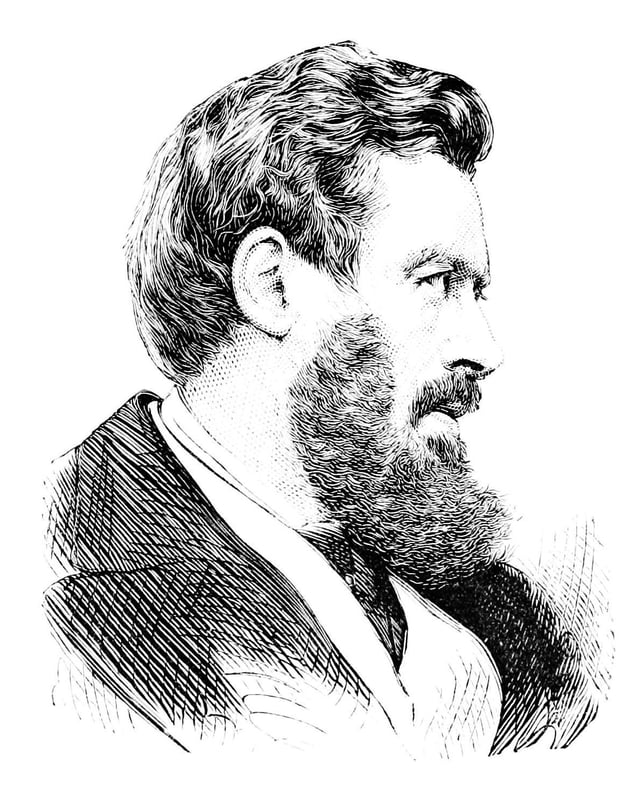
Walter Bagehot, one of the early editors of The Economist
The editors of The Economist have been:
James Wilson 1843–1857 (Herbert Spencer was sub-editor from 1848 to 1853)
Richard Holt Hutton 1857–1861[28]
Walter Bagehot, 1861–1877[29]
Daniel Conner Lathbury, 1877–1881[30] (jointly)
Robert Harry Inglis Palgrave, 1877–1883 (jointly)
Edward Johnstone, 1883–1907[31]
Francis Wrigley Hirst, 1907–1916
Hartley Withers, 1916–1921
Sir Walter Layton, 1922–1938
Geoffrey Crowther, 1938–1956
Donald Tyerman, 1956–1965
Sir Alastair Burnet, 1965–1974
Andrew Knight, 1974–1986
Rupert Pennant-Rea, 1986–1993
Bill Emmott, 1993–2006
John Micklethwait, 2006–2014[32]
Zanny Minton Beddoes, 2015–present[33]
Opinions
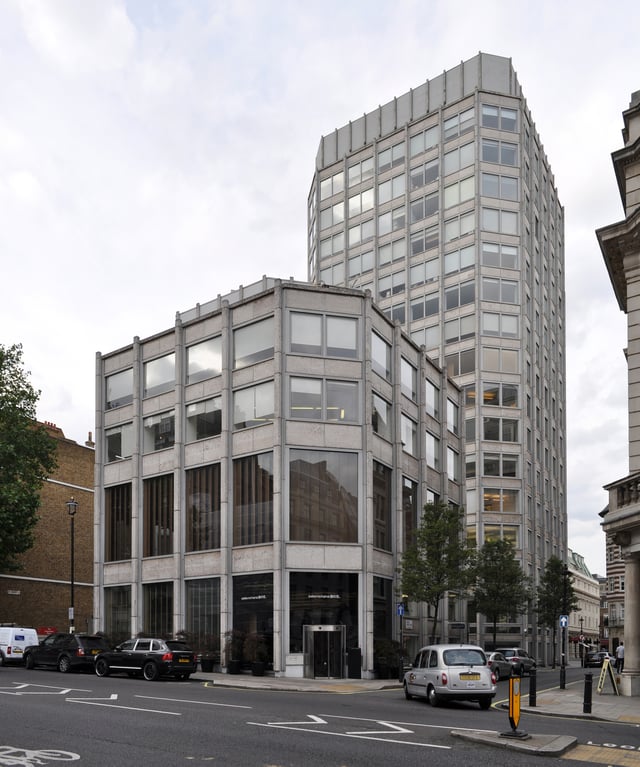
The Economist Building (until 2017), St James's Street, photo by Alison and Peter Smithson
When the news magazine was founded, the term "economism" denoted what would today be termed "economic liberalism". The Economist generally supports free trade, globalisation,[34] and free immigration. The activist and journalist George Monbiot has described it as neo-liberal while occasionally accepting the propositions of Keynesian economics where deemed more "reasonable".[35] The news magazine favours a carbon tax to fight global warming.[36] According to one former editor, Bill Emmott, "the Economist's philosophy has always been liberal, not conservative".[37] Individual contributors take diverse views. The Economist favours the support, through central banks, of banks and other important corporations. This principle can, in a much more limited form, be traced back to Walter Bagehot, the third editor of The Economist, who argued that the Bank of England should support major banks that got into difficulties. Karl Marx deemed The Economist the "European organ" of "the aristocracy of finance".[38]
The news magazine has also supported liberal causes on social issues such as recognition of gay marriages,[39] legalisation of drugs,[40] criticises the US tax model,[41] and seems to support some government regulation on health issues, such as smoking in public,[42] as well as bans on spanking children.[43] The Economist consistently favours guest worker programmes, parental choice of school, and amnesties[44] and once published an "obituary" of God.[45] The Economist also has a long record of supporting gun control.[46]
The Economist has endorsed the Labour Party (in 2005), the Conservative Party (in 2010 and 2015),[47][48] and the Liberal Democrats (in 2017) at general election time in Britain, and both Republican and Democratic candidates in the United States. Economist.com puts its stance this way:
What, besides free trade and free markets, does The Economist believe in? "It is to the Radicals that The Economist still likes to think of itself as belonging. The extreme centre is the paper's historical position". That is as true today as when Crowther [Geoffrey, Economist editor 1938–1956] said it in 1955. The Economist considers itself the enemy of privilege, pomposity and predictability. It has backed conservatives such as Ronald Reagan and Margaret Thatcher. It has supported the Americans in Vietnam. But it has also endorsed Harold Wilson and Bill Clinton, and espoused a variety of liberal causes: opposing capital punishment from its earliest days, while favouring penal reform and decolonisation, as well as—more recently—gun control and gay marriage.[24]
The Economist frequently accuses figures and countries of corruption or dishonesty. In recent years, for example, it criticised Paul Wolfowitz, World Bank president; Silvio Berlusconi, Italy's Prime Minister (who dubbed it The Ecommunist);[49] Laurent-Désiré Kabila, the late president of the Democratic Republic of the Congo; Robert Mugabe, the former head of government in Zimbabwe; and, recently, Cristina Fernández de Kirchner, the president of Argentina.[50] The Economist also called for Bill Clinton's impeachment[51] and, after the emergence of the Abu Ghraib torture and prisoner abuse,[52] for Donald Rumsfeld's resignation. Though The Economist initially gave vigorous support for the US-led invasion of Iraq, it later called the operation "bungled from the start" and criticised the "almost criminal negligence" of the Bush Administration's handling of the war, while maintaining, in 2007, that pulling out in the short term would be irresponsible.[53] In the 2004 US election, the editors "reluctantly" backed John Kerry.[54][55] In the 2008 US election The Economist endorsed Barack Obama, while using the front cover of the issue published on the eve of the election to promote his candidacy.[56] In the 2012 US election, Barack Obama was again endorsed: the editorial said that they preferred Obama on the economy, foreign policy and health care, but criticised him for running a negative campaign against Romney and for a "...poor appreciation of commerce."[57] In 2016, the Economist endorse Hillary Clinton, and the Democrats due "[p]artly because she is not Mr Trump, but also in the hope she can show that ordinary politics works for ordinary people—the sort of renewal that American democracy requires." [51]
In an editorial marking its 175th anniversary, The Economist criticised adherents to liberalism for becoming too inclined to protect the political status quo rather than pursue reform.[59] The paper called on liberals to return to advocating for bold political, economic and social reforms: protecting free markets, land and tax reform in the tradition of Georgism, open immigration, a rethink of the social contract with more emphasis on education, and a revival of liberal internationalism.[59]
Tone and voice
Though it has many individual columns, by tradition and current practice the magazine ensures a uniform voice—aided by the anonymity of writers—throughout its pages,[60] as if most articles were written by a single author, which may be perceived to display dry, understated wit, and precise use of language.[61][62] The Economist has traditionally—albeit not always consistently—persisted in referring to itself as a "newspaper", rather than a newsmagazine, due to the gradual pace of its transformation in format from newsprint to glossy colour (articles were printed on the front page into the 1950s) in addition to its general focus on current affairs as opposed to specialist subjects.[6]
The Economist's treatment of economics presumes a working familiarity with fundamental concepts of classical economics. For instance, it does not explain terms like invisible hand, macroeconomics, or demand curve, and may take just six or seven words to explain the theory of comparative advantage. Articles involving economics do not presume any formal training on the part of the reader and aim to be accessible to the educated layman. It usually does not translate short French (and German) quotes or phrases. It does describe the business or nature of even well-known entities, writing, for example, "Goldman Sachs, an investment bank".[51]
The Economist is known for its extensive use of word play, including puns, allusions, and metaphors, as well as alliteration and assonance, especially in its headlines and captions. This can make it difficult to understand for those who are not native English speakers.[64]
Editorial anonymity
Articles often take a definite editorial stance and almost never carry a byline. Not even the name of the editor (since 2015, Zanny Minton Beddoes[65]) is printed in the issue. It is a long-standing tradition that an editor's only signed article during their tenure is written on the occasion of their departure from the position. The author of a piece is named in certain circumstances: when notable persons are invited to contribute opinion pieces; when journalists of The Economist compile special reports (previously known as surveys); for the Year in Review special edition; and to highlight a potential conflict of interest over a book review. The names of The Economist editors and correspondents can be located on the media directory pages of the website.[66] Online blog pieces are signed with the initials of the writer and authors of print stories are allowed to note their authorship from their personal web sites.[67] "This approach is not without its faults (we have four staff members with the initials "J.P.", for example) but is the best compromise between total anonymity and full bylines, in our view", wrote one anonymous writer of The Economist.[68]
The editors say this is necessary because "collective voice and personality matter more than the identities of individual journalists"[69] and reflects "a collaborative effort".[70] In most articles, authors refer to themselves as "your correspondent" or "this reviewer". The writers of the titled opinion columns tend to refer to themselves by the title (hence, a sentence in the "Lexington" column might read "Lexington was informed...").
The American author Michael Lewis has criticised the magazine's editorial anonymity, labelling it a means to hide the youth and inexperience of those writing articles. In 1991 Lewis quipped: "The magazine is written by young people pretending to be old people... If American readers got a look at the pimply complexions of their economic gurus, they would cancel their subscriptions in droves".[71] Although individual articles are written anonymously, there is no secrecy over who the writers are as they are listed on The Economist's website, which also provides summaries of their careers and academic qualifications.[72]
John Ralston Saul describes The Economist as a "...magazine which hides the names of the journalists who write its articles in order to create the illusion that they dispense disinterested truth rather than opinion. This sales technique, reminiscent of pre-Reformation Catholicism, is not surprising in a publication named after the social science most given to wild guesses and imaginary facts presented in the guise of inevitability and exactitude. That it is the Bible of the corporate executive indicates to what extent received wisdom is the daily bread of a managerial civilization."[73]
Circulation
Each of The Economist issue's official date range is from Saturday to the following Friday. The Economist posts each week's new content online at approximately 2100 Thursday evening UK time, ahead of the official publication date.[74]
In 1877, the publication's circulation was 3,700, and in 1920 it had risen to 6,000.
Circulation increased rapidly after 1945, reaching 100,000 by 1970.[24]
Circulation is audited by the Audit Bureau of Circulations (ABC). From around 30,000 in 1960 it has risen to near 1 million by 2000 and by 2016 to about 1.3 million.[75] Sales inside North America were in 2007 around 54 per cent of the total, with sales in the UK making up 14 per cent of the total and continental Europe 19 per cent. The Economist claims sales, both by subscription and at newsagents, in over 200 countries. Of its American readers, two out of three earn more than $100,000 a year.[76]
The Economist once boasted about its limited circulation. In the early 1990s it used the slogan "The Economist – not read by millions of people". "Never in the history of journalism has so much been read for so long by so few," wrote Geoffrey Crowther, a former editor.[77]
The Economist Newspaper Limited is a wholly owned subsidiary of The Economist Group. The publications of the group include the CFO brand family as well as the annual The World in..., the lifestyle bimonthly 1843, European Voice, and Roll Call. Sir Evelyn Robert de Rothschild was Chairman of the company from 1972 to 1989.
Letters
The Economist frequently receives letters from senior businesspeople, politicians, ambassadors, and from spokespeople for various government departments, non-governmental organisations and lobbies. Well-written or witty responses from anyone are considered, and controversial issues frequently produce a torrent of letters. For example, the survey of corporate social responsibility, published January 2005, produced largely critical letters from Oxfam, the World Food Programme, United Nations Global Compact, the Chairman of BT Group, an ex-Director of Shell and the UK Institute of Directors.[78]
Many of the letters published are critical of its stance or commentary.
After The Economist ran a critique of Amnesty International and human rights in general in its issue dated 24 March 2007, its letters page ran a vibrant reply from Amnesty, as well as several other letters in support of the organisation, including one from the head of the United Nations Commission on Human Rights.[79] Rebuttals from officials within regimes such as the Singapore government are routinely printed, to comply with local right-of-reply laws without compromising editorial independence.[80]
It is extremely rare for any comment by The Economist to appear alongside any published letter. Letters published in the news magazine are typically between 150 and 200 words long (and began with the salutation "Sir" until the editorship of Zanny Minton Beddoes, the first female editor; they now have no salutation). Previous to a change in procedure, all responses to on-line articles were usually published in "The Inbox".[81] Comments can now be made directly under each article.
Features
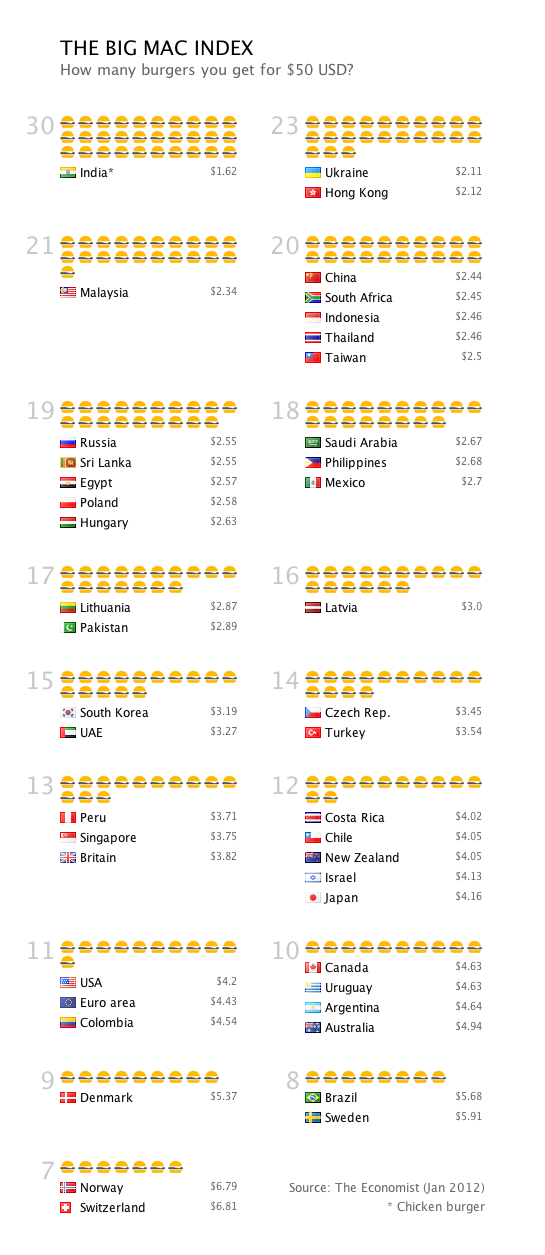
Visualisation of the Big Mac Index in January 2012
The Economist's primary focus is world events, politics and business, but it also runs regular sections on science and technology as well as books and the arts. Approximately every two weeks, the publication includes an in-depth special report[82] (previously called surveys) on a given topic. The five main categories are Countries and Regions, Business, Finance and Economics, Science and Technology, and Other. Every three months, it publishes a technology report called Technology Quarterly [83] or TQ, a special section focusing on recent trends and developments in science and technology.
Since July 2007, there has also been a complete audio edition of the news magazine available 9 pm London time on Thursdays.[84] The audio version of The Economist is produced by the production company Talking Issues. The company records the full text of the news magazine in mp3 format, including the extra pages in the UK edition. The weekly 130 MB download is free for subscribers and available for a fee for non-subscribers.
The publication's writers adopt a tight style that seeks to include the maximum amount of information in a limited space.[85] David G. Bradley, publisher of The Atlantic, described the formula as "a consistent world view expressed, consistently, in tight and engaging prose".[86]
There is a section of economic statistics. Tables such as employment statistics are published each week and there are special statistical features too. It is unique among British weeklies in providing authoritative coverage of official statistics and its rankings of international statistics have been decisive.[87] In addition, The Economist is known for its Big Mac Index, which it first published in 1986, which uses the price of the hamburger in different countries as an informal measure of the purchasing power of currencies.[88][89]
The publication runs several opinion columns whose names reflect their topic:
Analects (China) – named after The Analects, a collection of Confucian sayings, this column was established in February 2012, and was later discontinued in November 2014 and replaced by online China coverage.
Babbage (Technology) – named for the inventor Charles Babbage, this column was established in March 2010 and focuses on various technology related issues.
Bagehot (Britain) – named for Walter Bagehot /ˈbædʒət/, 19th-century British constitutional expert and early editor of The Economist. From July 2010[90] until June 2012[91] it was written by David Rennie. Since April 2017 it has been written by Adrian Wooldridge.
Banyan (Asia) – named for the banyan tree, this column was established in April 2009 and focuses on various issues across the Asian continent, and is written by Dominic Ziegler.
Baobab (Africa & Middle East) – named for the baobab tree, this column was established in July 2010 and focuses on various issues across the African continent.
Bartleby (Work and management) – named after the titular character of a Herman Melville short story, this column was established in May 2018.
Bello (Latin America) – named for Andrés Bello, a Venezuelan diplomat, poet, legislator and philosopher, who lived and worked in Chile.[92] The column was established in January 2014 and is written by Michael Reid.
Buttonwood (Finance) – named for the buttonwood tree where early Wall Street traders gathered. Until September 2006 this was available only as an on-line column, but it is now included in the print edition. It is written by Philip Coggan.
Chaguan (China) – named for Chaguan, the traditional Chinese Tea houses in Chengdu, this column was established on 13 September 2018.[93]
Charlemagne (Europe) – named for Charlemagne, Emperor of the Frankish Empire. It is written by Jeremy Cliffe[94] and earlier it was written by David Rennie (2007–2010) and by Anton La Guardia[95] (2010–2014).
Erasmus (Religion and public policy) – named after the Dutch Christian humanist Erasmus.
Game Theory (Sport) – named after the science of predicting outcomes in a certain situation, this column focuses on "sports major and minor" and "the politics, economics, science and statistics of the games we play and watch".
Johnson (language) – named for Samuel Johnson, this column returned to the publication in 2016 and covers language. It is written by Robert Lane Greene.
Lexington (United States) – named for Lexington, Massachusetts, the site of the beginning of the American Revolutionary War. From June 2010 until May 2012 it was written by Peter David, until his death in a car accident.[96]
Prospero (Books and arts) – named after the character from William Shakespeare's play The Tempest
Schumpeter (Business) – named for the economist Joseph Schumpeter, this column was established in September 2009 and is written by Patrick Foulis.
Other regular features include:
Face Value, about prominent people in the business world
Free Exchange, a general economics column, frequently based on academic research, replaced the column Economics Focus in January 2012
An obituary.
Since 1997 it has been written by Ann Wroe.[97]
sections on science and the arts
The news magazine goes to press on Thursdays, between 6 pm and 7 pm GMT, and is available at newsagents in many countries the next day.
It is printed at seven sites around the world.
Known on their website as "This week's print edition", it is available online, albeit with only the first five viewed articles being free (and available to subscribers only mid-October 2009 – 2010).
The Economist published in 2015 its first US college rankings, focused on comparable economical advantages defined as 'the economic value of a university is equal to the gap between how much its students subsequently earn, and how much they might have made had they studied elsewhere'. Based on set of strict criteria sourced from US Department of Education ("College Scorecard") with relevant 'expected earnings' and multiple statistics applied in calculation of 'median earnings' conclusive evaluation method has been applied to run the scorecard's earnings data through a multiple regression analysis, a common method of measuring the relationships between variables.[98]
The Economist also produces the annual The World in [Year] publication. It also sponsors a writing award.
Awards
Innovation Awards

Innovation Awards logo
The Economist sponsors the yearly "Economist Innovation Awards", in the categories of bioscience, computing and communications, energy and the environment, social and economic innovation, business-process innovation, consumer products, and a special "no boundaries" category.[99] The awards have been held since 2002. Nominations are held between 2 and 30 April. The award ceremony is then hosted on 15 November. Choices are based on the following factors:[100]
How much revenue their innovation has made their company or its economic impact on a specific good cause or society in general
The effect their work has had on the marketplace (or if it's created a whole new marketplace altogether)
The impact their innovation has had on a new type of science or technology
Writing prize
In 1999, The Economist organised a global futurist writing competition, The World in 2050. Co-sponsored by Royal Dutch/Shell, the competition included a first prize of US$ 20,000 and publication in The Economist's annual flagship publication, The World In.[101] Over 3,000 entries from around the world were submitted via a website set up for the purpose and at various Royal Dutch Shell offices worldwide.[101]
The judging panel included Bill Emmott,[101] Esther Dyson,[102] Sir Mark Moody-Stuart (then-chairman of Royal Dutch Shell),[101] and Matt Ridley (a British scientist and member of the House of Lords).[103]
Censorship
Sections of The Economist criticising authoritarian regimes are frequently removed from the magazine by the authorities in those countries. The Economist regularly has difficulties with the ruling party of Singapore, the People's Action Party, which had successfully sued it, in a Singaporean court, for libel.[104]
Like many other publications, The Economist is subjected to censorship in India whenever it depicts a map of Kashmir. The maps are stamped by Indian Customs officials as being "neither correct, nor authentic". Issues are sometimes delayed, but not stopped or seized.[105]
On 15 June 2006, Iran banned the sale of The Economist when it published a map labelling the Persian Gulf simply as Gulf—a choice that derives its political significance from the Persian Gulf naming dispute.[106]
In a separate incident, the government of Zimbabwe went further and imprisoned The Economist's correspondent there, Andrew Meldrum. The government charged him with violating a statute on "publishing untruth" for writing that a woman was decapitated by supporters of the ruling Zimbabwe African National Union – Patriotic Front party. The decapitation claim was retracted[107] and allegedly fabricated by the woman's husband. The correspondent was later acquitted, only to receive a deportation order.
On 19 August 2013, The Economist disclosed that the Missouri Department of Corrections had censored its issue of 29 June 2013. According to the letter sent by the department, prisoners were not allowed to receive the issue because "1. it constitutes a threat to the security or discipline of the institution; 2. may facilitate or encourage criminal activity; or 3. may interfere with the rehabilitation of an offender".[108]
Criticism, accusation and praise
In 1991, James Fallows argued in The Washington Post that The Economist used editorial lines that contradicted the news stories they purported to highlight.[71] In 1999, Andrew Sullivan complained in The New Republic that it uses "marketing genius"[109] to make up for deficiencies in analysis and original reporting, resulting in "a kind of Reader's Digest"[110] for America's corporate elite.[111] Although he acknowledged that the magazine's claim about the dotcom bubble bursting would probably be accurate in the long run (the bubble burst in the US market two years later),[112] Sullivan pointed out that the magazine greatly exaggerated the danger the US economy was in after the Dow Jones fell to 7,400 during the 1998 Labor Day weekend. He also said that The Economist is editorially constrained because so many scribes graduated from the same college at Oxford University, Magdalen College.[110] The Guardian wrote that "its writers rarely see a political or economic problem that cannot be solved by the trusted three-card trick of privatisation, deregulation and liberalisation".[113]
In 2005, the Chicago Tribune named it the best English-language magazine noting its strength in international reporting where it does not feel moved to cover a faraway land only at a time of unmitigated disaster" and that it kept a wall between its reporting and its more conservative editorial policies.[114]
In 2008, Jon Meacham, former editor of Newsweek and a self-described "fan", criticised The Economist's focus on analysis over original reporting.[115]
In 2014, the magazine withdrew a harshly-criticised review of a book by Edward Baptist on slavery and American capitalism. The Economist had complained that "[a]lmost all the blacks in his book are victims, almost all the whites villains".[122] Baptist attributed the harsh review to the magazine's adherence to "free-market fundamentalist" theories, "the idea that everything would be better if measured first and last by its efficiency at producing profit".[123]
In 2019 following an interview of right-wing commentator Ben Shapiro, The Economist published an article on their website that included in its title a description of Shapiro as "an alt-right sage" and stated that he was "a pop-idol of the alt-right". Mr. Shapiro, a vociferous critic of the alt-right, was the number one recipient of anti-semitic attacks online in 2016 as measured by the Anti-Defamation League, almost exclusively from alt-right actors criticizing his then-opposition to Donald Trump's presidential candidacy.[124] This led some commentators to accuse the publication of anti-conservative bias.[125][126] The Economist later that day changed the article and issued an apology.[127]